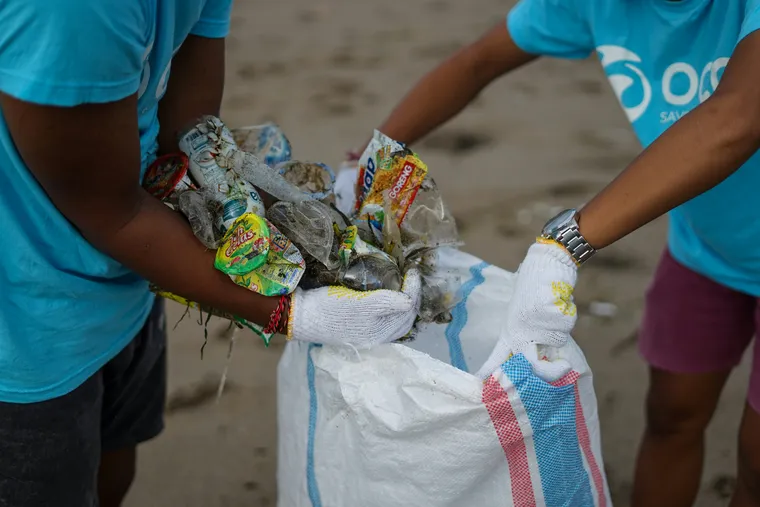In my house, recycling is never an easy task.
We’ve lived in a few different places over the last several years, and each city has had its own rules about what does and doesn’t belong in the recycling bin. Compounding that, I’ve read or listened to multiple reports that suggest many recyclables still end up in landfills, and some of the items marked as recyclable actually aren’t. Recycling is a well-intentioned act, one my family participates in because we care about the environment and the future habitability of the planet. But it’s easy to get it wrong, negating our efforts.
Zooming out from recycling, it can feel overwhelming to lead a sustainability-focused life, maybe even futile at times. Individual actions (e.g., driving electric vehicles, ditching single-use plastics, composting food scraps, etc.) are commendable, but they don’t seem to change the doomsday headlines. Each year becomes the planet’s warmest; week after week, there’s another report about the international failure to cut greenhouse gas emissions.
The message again and again is that, though there are many admirably eco-conscious individuals out there, it’s the mass-scale efforts of governments and corporations that will really make a difference. A paper straw is only a drop in the climate-change bucket.
I admit, when I read about extreme weather or water crises, I can be a bit of a doomer. But I’m fortunate to do this work, in which I get to hear incredible stories about all the sustainability and conservation work happening across parks, recreation, and camps. I’m reminded that individual actions do matter, especially when all those individuals come together as a group to reach as many people and habitats as possible.
Let our annual Sustainability issue be that reminder for you, too. There are thousands upon thousands of leaders out there working to preserve our planet’s health through advocacy, education, and conservation work in the field. And this month’s stories highlight a few of those initiatives.
On the advocacy front, we take a look at the Just Transition framework, which serves as a model for inclusive and impactful climate work. Concerning education, we offer a data-backed approach to making camps more sustainable. And demonstrating conservation, we showcase several projects across the country that have baked in sustainability from the start, preserving natural topography and honoring local history.
At the core of these stories is a reverence for the outdoors and a hopeful vision of the future. A project or idea may initially target a specific city or group, but the positive impacts reverberate. The results of each initiative add up nationally to achieve something much bigger. The collective effort is happening on small scales in many places, but it’s happening, all at once, and it’s making a difference.
I still think it’s important for my family and I to make recycling (correctly) second-nature. But I also must remember that we’re not the only ones attempting to make the right choices. Enough of us are trying, and as long as we keep doing so, our work will eventually pay off.


